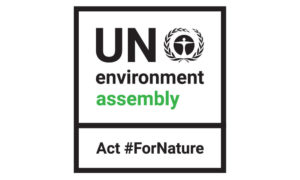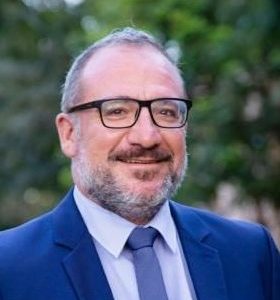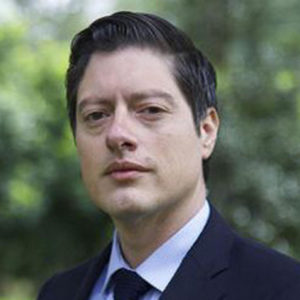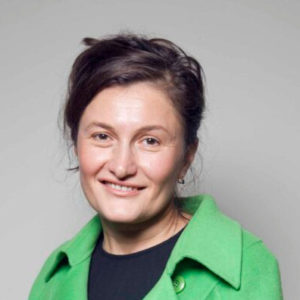Événement Virtuel
Briefing on the 5th Session of the United Nations Environment Assembly | GENeva UNEA Briefing

Produits chimiques et pollution | Nature | Climat | Économie verte | Santé et environnement
ODD1 | ODD2 | ODD3 | ODD6 | ODD8 | ODD12 | ODD13 | ODD14 | ODD15 | ODD17
This briefing was especially targeted to Member States who are not represented in Nairobi, where UNEP has its headquarters. It was also open to all stakeholders and discussed the preparations for the 5th Session of the UN Environment Assembly (UNEA-5), which first part is scheduled to take place virtually in February 2021.
About the UN Environment Assembly
The United Nations Environment Assembly is the world’s highest-level decision-making body on the environment. It addresses the critical environmental challenges facing the world today. Understanding these challenges and preserving and rehabilitating our environment is at the heart of the 2030 Agenda for Sustainable Development.
The Environment Assembly meets biennially to set priorities for global environmental policies and develop international environmental law. Through its resolutions and calls to action, the Assembly provides leadership and catalyzes intergovernmental action on the environment. Decision-making requires broad participation, which is why the Assembly provides an opportunity for all to help design solutions for our planet’s health.
About the 5th session of the UN Environment Assembly (UNEA-5)
The Fifth Session of the UN Environment Assembly will take place in two-parts, a reduced (de minimis) session in February 2021 and a resumed session in February 2022. It will mobilize, motivate and energize member States and stakeholders into sharing and implementing successful approaches and nature based solutions that contribute to the achievement of the 2030 Agenda and the Sustainable Development Goals, particularly the eradication of poverty and the promotion of sustainable patterns of consumption and production.
The theme “Strengthening Actions for Nature to Achieve the Sustainable Development Goals” calls for strengthened action to protect and restore nature and the nature-based solutions to achieve the sustainable development goals in its three complementary dimensions (social, economic and environmental).
About the European Major Groups and Stakeholders Regional Consultation Meeting for UNEA-5
The Regional Consultation Meeting for the European Region will take place on 16 and 17 December 2020, online, on the Zoom platform.
16 December
- Session 1: The Road to UNEA 5 (9:30 – 12:30 pm CET)
Objectives: stakeholders understand the road to UNEA 5.1 and on to UNEA 5.2 in 2022, its setup, themes and engagement possibilities and the link to other important processes in 2021/2022
Facilitation: Patrizia Heidegger, EEB (Regional Facilitator Europe)
Facilitation: Sophiko Akhobadze, REC Caucasus (Regional Facilitator Europe) - Session 2: UN Environment Medium Term Strategy (2-3:30pm CET)
Facilitation: Bert de Wel, Workers and Trade Unions MG (TBC)
Objectives: stakeholders understand what the MTS is, what the new MTS looks like, how they get engaged in its implementation
17 December
- Session 3: Opportunities around UNEA: Treaty on plastic pollution and Global Pact for the Environment (9:30 – 12:00 pm CET)
Facilitation: Patrizia Heidegger, EEB (Regional Facilitator Europe)
Objectives: stakeholders understand the opportunities around the UNEA process, in particular, a UN Treaty on Plastic Pollution and the Global Pact for the Environment or a reform of international environmental law and governance
If you wish to attend these session kindly contact the colleagues at EEB.
About the Briefing
This briefing was especially dedicated to Member States who are not represented in Nairobi, where UNEP has its headquarters. It was also open to all stakeholders and discussed the preparations for the 5th Session of the UN Environment Assembly.
Speakers

Bruno POZZI
Europe Director, UN Environment Programme

Jorge LAGUNA
Director, Governance Affairs Office, UN Environment Programme

Patrizia HEIDEGGER
Director of Global Policies and Sustainability, European Environment Bureau (EEB)

Sophiko AKHOBADZE
Director, Regional Environmental Center for the Caucasus

Wondy ASNAKE
Policy and Partnerships Coordinator, Europe Office, UN Environment Programme
Summary
Welcome and Introduction
Bruno POZZI, Europe Director, UN Environment Programme
The UN Environment Assembly is the world highest decision-making body on the environment and meets biennially to set priorities for global environmental policy and develop international environmental law. This briefing aims at updating stakeholders on the preparations of these major negotiations. These sessions are important in order to brief and engage with missions that are not located in Nairobi, where the UNEP headquarters are, as well as all stakeholders who are making the environment a central pillar of their action.
In two months, the UNEA-5 will take place and remains important despite its different structure. It will be held in two sessions in February 2021 and then February 2022 to deepen our commitments to the scope of UNEA-5, which is to strengthen the actions for nature and achieve the Sustainable Development Goals. The UNAE-5 will look into the mid-term strategy, the programme of work, administrative matters, and engagement of member states.
This event is important in this pandemic time, as we need to build back better while keeping in mind that the most important crisis that humanity is facing is an environmental one. One about climate change, biodiversity loss and pollution resulting from our unsustainable patterns of production and consumption. Therefore, the UNEP is proud that member states have agreed to hold this session. Another briefing will be held before the UNEA-5 to further engage with stakeholders.
Preparations for the 5th Session of the UN Environment Assembly (UNEA-5)
Jorge LAGUNA, Director, Governance Affairs Office, UN Environment Programme
In these challenging circumstances, members states have lent their support in the process of strengthening the Environmental Assembly. Contrary to many conferences, the UNEA-5 is indeed going ahead and will be delivering for UNEP and the international community. Members states have decided to hold the Assembly in two segments: a meeting virtual in February 2021 and a substantive in-person meeting in February 2022.
Regarding the expected outcomes of the Assembly, members states have agreed that the programme of work, the budget and, foremost, the transformational approach to the medium-term strategy remains a central priority. Instead of extending the current validity of the delivery framework of the UNEP, member states have agreed to embark hand-in-hand with the executive director the UNEP in a very ambitious transformational strategy. So far, eight or nine rounds of consultations have been held on the subject. The adoption of this strategy for the next 4 years will be one of the key outcomes that we hope to deliver for the first virtual Assembly. This strategy will guide the work of the UNEP and its engagement in networks of environmental agreements, treaties and institutions that support the global environmental agenda.
Furthermore, Members states agreed that the Assembly should address some of the most important issues of our time. Thus, the first virtual Assembly will have a high-level segment in the form of a substantive leadership dialogue and a series of roundtables. There will be an opportunity for Ministers, high-level delegates and representatives of major groups and stakeholders to discuss how the environment can support and build a resilient and inclusive post-pandemic world.
Instead of talking about building back better, how about we build forward better? Making peace with nature in one of the most important challenges of the 21st century and the overachieving priority for everyone everywhere. To that extent, recovering from the pandemic remains a tremendous opportunity for the institutions that are working for a more sustainable world. We intend to address this challenge from a high-level perspective with concrete key message which will arise from this important dialogue.
The roundtable will allow Ministers and high-level representative to highlight key messages which will help us articulate and advance the environmental agenda in 2022. This will also help support other upcoming global environmental process with potential transformative outcomes, such as the Conference for Biodiversity and the development of a new framework for the sound management of chemicals and waste.
Another key aspect of the UNEA-5 currently under discussion is on the development of a message for the high-level segment of the UNEA. This process is actively supported by the Secretariat on behalf of the Executive Director, while accepting that there are extreme and difficult limitations to negotiations in a virtual setting. Nevertheless, there is a willingness to ensure that the Assembly does not remain voiceless and that there can be some consensual messages and calls for actions from the environmental Ministries gathered virtually in Nairobi.
Aside from governments, stakeholders also play a key role, and we hope to leverage tolls of informational technology to make inclusive processes and ensure all voices are heard. While we are working closely with civil society representatives who are engaged in the preparations for the UNEA-5, we welcome initiatives for regional stakeholder consultations. We are also working to create a space for global major groups and stakeholder forum to convene in a similar virtual setting ahead of the Assembly. This is a tremendous opportunity for civil society to engage, provide key messages and influence the outcomes of the Assembly.
After adopting the medium-term strategy in February 2021 and having the environmental constituencies speaking on green and sustainable recovery from the pandemic, we will be launching a very ambitious exercise leading to the UNEP 50th anniversary in 2022. The UNEP@50 will be celebrated in Nairobi in the context of the resumed UNEA-5 session. We are also listening closely to member states who are calling for an event to commemorate the 50th anniversary of the Stockholm Conference in 1972. The Secretariat is supporting the process which will culminate in these high-level events through the definition of a political declaration that addresses the implementation of paragraph 88 of the Rio+20 outcome document and the strengthening of the environmental dimension of sustainable development, but also many other tracks which will yield concrete and ambitious agreements on marine litter, biodiversity, chemical products, etc. There is tremendous momentum to ensure that 2022 becomes the year for nature in which we build forward better.
We invite you to remain engaged, keep supporting this process and participate from wherever you are, as you will have to be heard and impact the process. For members in Geneva, we are pleased to inform you that the official notification for the UNEA-5 will be sent out soon.
Civil Society Engaging in UNEA-5 Preparations
Patrizia HEIDEGGER, Director of Global Policies and Sustainability, European Environment Bureau
Major groups, representing NGOs, women, children and young people, indigenous people, farmers, business, the science and technology community, and local authorities, contribute to UNEP-lead processes with their knowledge and experience. This week, the regional consultation meeting for the European region will be held, with the aim of building the capacity of civil society organizations to participate in the UNEA process and to continue the European Environment Bureau’s own preparations and contributions to this process. The European Environment Bureau will adopt a regional statement, which will be shared as soon as the consultation is finished, but a few core messages can already be noted.
Regarding the set-up of the UNEA-5.1, it is obvious that the physical meeting had to be postponed to 2022 and it appears we will mostly be dealing with administrative matters in the first session in 2021. However, while the pandemic has put the brakes on our lives, it has not put the brakes on environmental deterioration. Thus, we cannot put on hold the urgent protection of the environment and the climate and we need new transformative policies to come in. We need to maintain the momentum and to even speed up the efforts and the global environmental decision-making, as negative effects on the planets are not slowing down.
The European Environment Bureau support the initiative from the President of the UNEA-5 for a clear political message to emerge from the first session. We call for the adoption of a strong political message laying out ambitions and actions for 2021 all the way to the full meeting of UNEA-5 in 2022. Two additional important process have been kicked off recently and constitute an opportunity for UNEA to fully realize the full potential of its process. The first started with resolution 73-333 on strengthening global environmental law and governance (formerly known as the Global Pact for the Environment). Civil society strongly supports this process and encourage actors to reengage in these discussions and close the gaps in international environmental law. The resolution asks for a political declaration for February 2021 and civil society calls for avoiding delays on these discussions. The second one is the process on marine litter and microplastics, which is also strongly supported by civil society. If current trends on plastic use continue, the impacts on humanity and the planet would be catastrophic. Although negotiations are probably in need of in-person discussions, civil society strongly supports intersessional gatherings so as to maintain momentum around the issue. UN members should also maintain momentum toward UNEA-5.2 to identify and address emerging environmental challenges which are not yet regulated, such as raw material use, natural resources use, deep-sea mining or soil degradation.
Finally, regarding UNEP@50 and Stockholm+50, we suggest closer cooperation with major groups and stakeholders, so that that these processes can build a global framework for strong environmental governance and law. We hope to see very concrete actions so that 2022 becomes the year in which we kick off the process to establish a global action plan to strengthen and enforce environmental law.
Civil society is fully in support of paragraph 88 of the Rio+20 outcome document with a strong mandate for UNEP and the exploration of new mechanisms to ensure transparency and the effective engagement of civil society. We call for more support for governments to engage with civil society, in terms of open doors, willingness to engage in dialogues and take civil society’s knowledge and expertise, as well as funding so that civil society can engage in meaningful way. In that regard, we call on you to support and adopt the stakeholder engagement policy that has been development for UNEP to fulfil the promises of paragraph 88.
Civil society organizations from the European Region are very happy to strengthen the partnerships with the UNEA members in their region, to engage in the implementation of the environmental dimensions of the SDGs. Next to the UNEA process, we are also contributing to the voluntary national reviews that are prepared for the HLPF 2021. There are many opportunities for engagements, and we are looking forward to the year ahead.
Sophiko AKHOBADZE, Director, Regional Environmental Center for the Caucasus
Civil society and major groups from Eastern Europe and South Caucasus have been advocating for many years for policies that support transformative changes leading to sustainable development, nature protection, functional ecosystems and therefore social inclusion. The region is facing considering environmental challenges today. The rich mountain biodiversity of the Caucasus and Eastern European region enriches the lives of over half of the population in the form of water, energy, agriculture and other essential goods. In recent years, loss of biodiversity and habitat and climate change have taken place so intensively and rapidly in the region that established adaptation mechanisms for people in high mountain regions are losing their efficacy. This has resulted in an increased risk of poverty, marginalisation, internal migration, and conflict.
Therefore, there is an urge to sustain biodiversity and improve livelihoods in remote areas. We are convinced that this time, member states will succeed to work together in order to upscale nature-based solutions to play a crucial role in post-COVID recovery. That is the only way to achieve the SDGs, especially relating to no hunger, climate, health and prosperity. Protecting, restoring and sustainably managing nature is the only strategy for tackling climate change. Unfortunately, while the impact of climate change is rising, regions are high-altitude are often on the edge of decision-making, due to their isolation, inaccessibility and poverty. For many years, major groups have been advocating for recognizing the importance of nature-based solutions for climate and increasing their prominence in global climate policy. Community-level initiatives on restoring and sustainably managing nature are the main contributor to food security, while they create green jobs and businesses, which need to be supported by member states.
We strongly encourage member states to work together toward a resolution to be adopted in the UNEA-5 to strengthen the role of the UNEP, to promote and strengthen the actions for protecting, restoring, and sustainably managing nature, to achieve SDGs leaving no one behind. Lastly, engagement with major groups and civil society does not hurt. We need to act together to restore our nature for our children and our children’s children. Through engagement, we thrive to understand each other better, and our actions become transformative. Therefore, we call on all parties to ensure participation and contributions of major groups and stakeholders at the UNEA-5.
UNEP in Europe Engaging in UNEA-5 Preparations
Wondy ASNAKE, Policy and Partnerships Coordinator, Europe Office, UN Environment Programme
While we have lots of food for thoughts and actions until UNEA-5, three points need to be highlighted. First, the mid-term strategy looks at specific actions which should lead us toward climate stability, harmony with nature, and a pollution-free planet. UNEP has extensive knowledge and experience within its sphere and through its network: (1) science-policy interface, which can advance the actions for nature, (2) environmental governance, (3) economic and financial transformation and (4) digital transformation, which are desperately needed.
Secondly, we encourage members states to look at what the Executive Director has proposed in her report. This outlines four specific transformative actions in terms of climate, healthy ecosystems, poverty eradication, jobs and economic prosperity, but also in terms of food systems. 2021 is also the year of the UN Summit on food systems, for which the UN is steering the UN Task Force. This is also an area in which we can pick up the pieces and ensure that we use them as we go forward to 2022.
Thirdly, regarding the HLPF, we are holding the regional sustainable forum in mid-March. This year, a very interesting sets of SDGs are being reviewed with significant impacts on the environmental dimensions of the 2030 Agenda: poverty (SDG1), food systems (SDG2), health (SDG3), jobs and economic growth (SDG8), inequality (SDG10), climate (SDG13), governance (SDG16) and partnerships (SDG17). Linked to this, the UNEP is also very much involved in the preparation of the forum. We look forward to the engagement of more parties in the peer-learning sessions that we are organizing.
Q&A
Are there any updates regarding the preparations for the UNEA-5 in the Latin American and Caribbean region?
LAGUNA: Indeed, the forum of Minister of the Environment for Latin American and the Caribbean will be meeting virtually in January in order to deliver their messages to UNEA-5.1. We are supporting similar virtual engagements and organisations with stakeholders and major groups. If it has not happened yet, it will happen this week that a very similar consultative meeting, like the one that will take place for European organizations, will take place for Latin America and the Caribbean NGOs.
Will the UNEA-5 virtual session open to the public?
LAGUNA: Most sessions, including large plenaries, will be available to the public. For sure, streaming for the leadership dialogues and the commitment that ministers make will be open. Through our colleagues at GEN, we will be sharing all the proper links.
Closure
Bruno POZZI, Europe Director, UN Environment Programme
We are humbled by the trust that member states have put into the UNEP to deliver UNEA-5.1 session in February. There is a momentum that we need to continue building to achieve transformative action when reconvene physically in 2022 in nairobi. That way, we can put forward a agenda that puts sustainable production and consumption at the center and brings natural-based solutions as one of the solutions to tackle climate crisis, biodiversity loss and pollution crisis. While we move towards this agenda 2022, UNEP and member states keep on delivering on the resolutions of UNEA-4. We are pushing for and delivering a number of actions with member states that are really having a transformative effect.
The second briefing organized with the Norwegian Presidency of UNEA will be held in mid-January. In Geneva, we are pushing the various agenda very strongly with support of our colleagues at the headquarters. Marine litter is one of the subject which we would like to push at the UNEA-5.2. Members states have now agreed to push this agenda to a net step, and it is at the heart of UNEP actions as well.
Jorge LAGUNA, Director, Governance Affairs Office, UN Environment Programme
To highlight some elements that we raised by the speakers, it is absolutely evident that we ensure that the processes are moving forward to the highest common denominator and not just to deliver our mandates. The role of civil society in that aspect is critical.
Secondly, Governments need to create space for meaningful participation of civil society and major groups. It’s an area in which we have been working, but also in which we can do much more. The main tracks that have been highlighted are extremely important and those are the ones in which look forward to work in 2021 and 2022 to deliver meaningful outcomes. That way we ensure that we maintain momentum in the context of the 5th anniversary of the Paris Agreement and the message that the Secretary General has been sending to put environment and climate at the centre of a sustainable economic and social recovery from COVID-19.
Bruno POZZI, Europe Director, UN Environment Programme
We are building momentum and moving forward. We will have an important moment in February 2021 and together, we will build forward better. Because there is no other choice at the end of the day. The emissions gap report that was published last week shows that we need to change gear, we need to act now, and we have no choice but acting for our planet and future generations.
Video
The event was live on Facebook and on this webpage.
